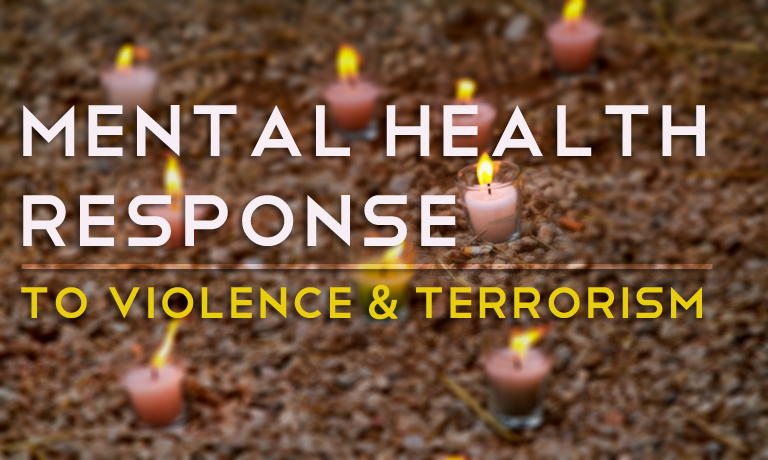The Emergency Mental Health and Traumatic Stress Services Branch (formerly the Emergency Services and Disaster Relief Branch) of the Center for Mental Health Services (CMHS) through the Substance Abuse and Mental Health Services Administration (SAMHSA), and the Office for Victims of Crime (OVC) in the Office of Justice Programs (OJP), U.S. Department of Justice (DOJ), formed a collaboration in 1999 to provide mental health training, technical assistance, and consultation services for professionals assisting victims of crime. As part of a formal agreement between the two agencies, this training manual was developed to assist mental health providers in better serving victims of terrorism and mass violence.
CMHS has extensive experience in a number of areas surrounding disaster response, including crisis counseling. OVC works with Federal, State, and local governments and nongovernmental partners in promoting justice and healing for all victims of crime. Both CMHS and OVC have drawn on their considerable experience to develop this manual and provide the most relevant and comprehensive information available to mental health and crime victim service providers in responding to victims of terrorism and mass violence. Through the preparation of this document, both CMHS and OVC are furthering their goals of addressing the mental health needs of victims, survivors, and communities in the aftermath of terrorist and mass violence crimes. The events of September 11, 2001, the Oklahoma City bombing, and other events both in the United States and abroad, have served as dramatic examples of the need for mental health services in the wake of terrorism and mass violence. Because the risk of becoming a victim of mass violence has risen dramatically in the last decade, the need for competent mental health services following a disaster has increased significantly. This manual seeks to present mental health and crime victim service providers with a comprehensive and informative resource for assisting terrorism and mass violence victims and affected members of the communities in which acts occur. To do so, it explores an array of reactions providers may encounter following an incident. In addition, providers are presented with characteristics of the criminal justice system and how best to support victims and survivors participating in this process. Furthermore, the manual provides information for providers to understand and manage their own work-related stress.
The primary goal of this manual is to enable mental health and crime victim service providers to help victims, survivors, and the community-at-large cope and recover through outreach and support. To further this goal, the manual includes a training course for providing mental health in the wake of a disaster. Included are field and training resources such as handouts, overheads, and rapid field training Modules—including supplementary training for paraprofessionals. By preparing in advance, providers will be better equipped to help victims, survivors, and affected individuals cope with the profound losses and traumatic experiences that stem from these crimes.

